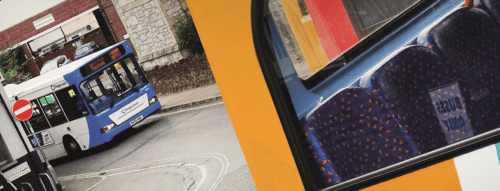
Stagecoach Devon is to provide four days of free travel in Exeter as compensation for poor service and significant lost mileage as a result of staff shortages
Following on from an earlier hearing held in Exeter on 22 June, and which continued in Bristol on 27 October, Traffic Commissioner (TC) for the Western Traffic Area Kevin Rooney issued a written decision on 7 November in a case involving Stagecoach Devon Ltd t/a Stagecoach South West.
Stagecoach Devon is the holder of a standard national public service vehicle operator’s licence authorising the use of 475 vehicles. Statutory directors are Bruce Dingwall, Carla Stockton-Jones and Michael Watson, and the current transport managers are Anthony James Vincent, appointed in May 2020, Katy Wagstaff, appointed in August 2021 and Simon Ford, appointed in June of this year.
The inquiry was called to deal with two separate matters, the first of which was an incident which occurred on 5 October 2019 and which was dealt with in a decision issued on 3 August, and published in CBW issue 1540. The second issue at hand was the reliability of registered bus services and associated applications to change services at short notice.
The primary evidence for the latter had been the report of DVSA Traffic Examiner (TE) Christopher Eggins. On 20 June 2022, two days before the initial hearing, the TC was also contacted by Cllr Andrea Davis of Devon County Council who raised fresh concerns in relation to the operator’s service reliability. On 14 July, a further letter was received from Cllr Davis which alleged that claims of improvement made by the operator’s Managing Director at public inquiry had not been evidenced. The letter made further complaints in relation to the detrimental effect on local services caused by Stagecoach providing drivers for large events. The TC felt that the contents of the letter needed to be put to the operator for fairness, and reconvened the hearing.
[…]By subscribing you will benefit from:
- Operator & Supplier Profiles
- Face-to-Face Interviews
- Lastest News
- Test Drives and Reviews
- Legal Updates
- Route Focus
- Industry Insider Opinions
- Passenger Perspective
- Vehicle Launches
- and much more!


